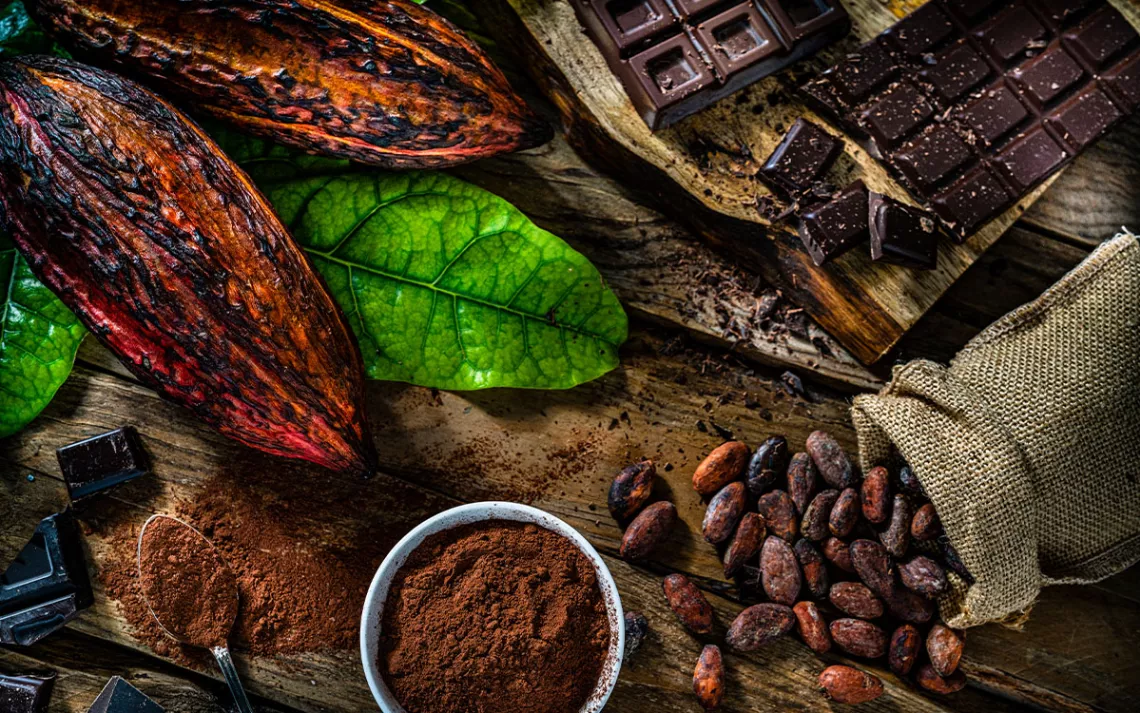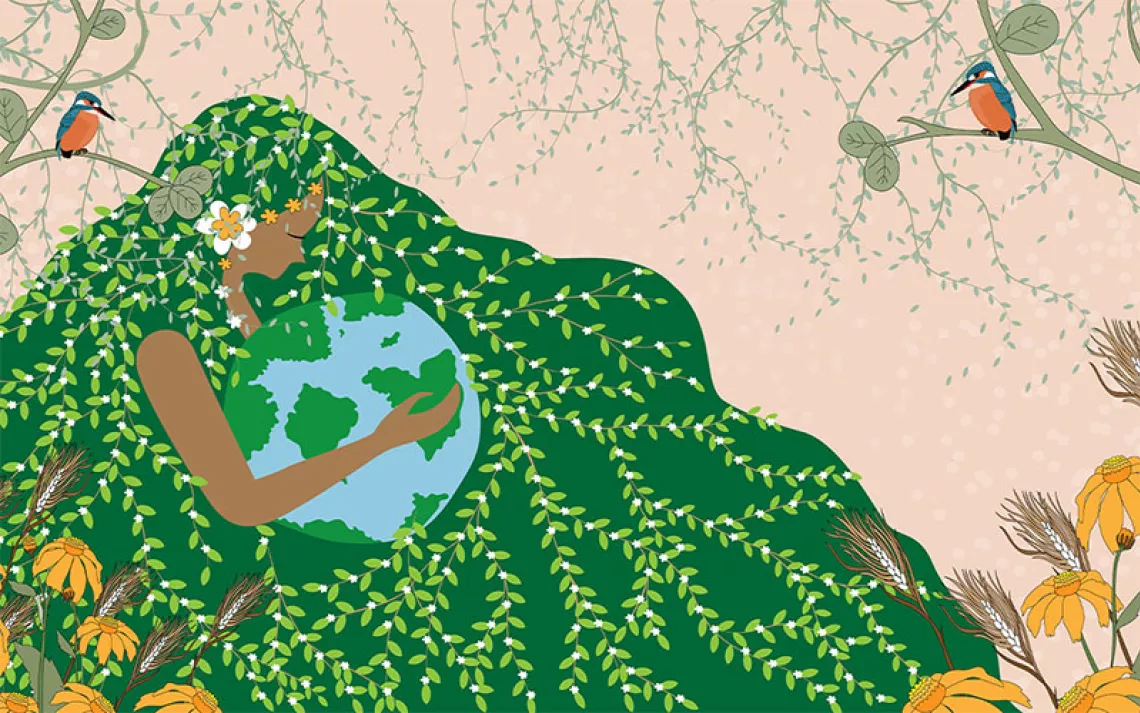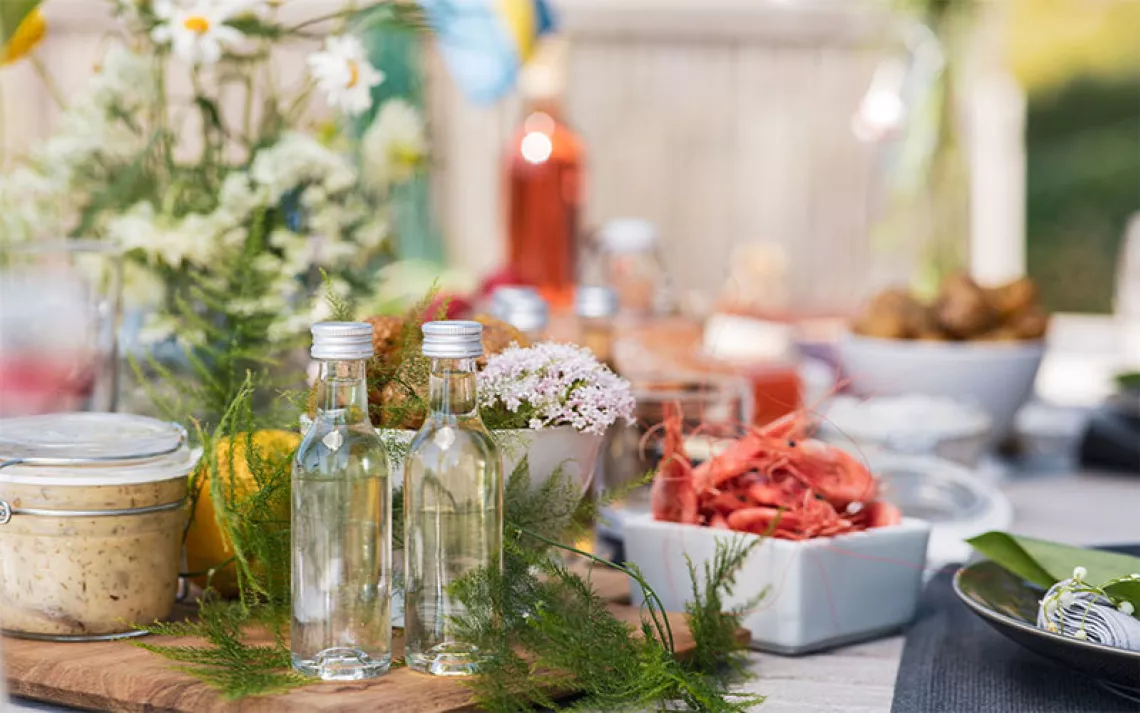What Is the Best Sustainable and Ethical Chocolate?
How to not get tricked by “plastic free,” "fair trade,” and “sugar free” treats

Photo by fcafotodigital/iStock
It seems like there are more and more brands and varieties of chocolate to choose from than ever before. Many of them have labels that appeal to the green-conscious buyer, such as “Fair Trade,” “Rainforest Alliance/UTZ,” “Direct Trade,” and “Certified Compostable.” But which ones really are the best for you, the environment, and the workers who produced those tasty treats?
I looked at about 600 manufacturers, grocers, cafes, personal care companies, wholesalers, and other organizations on Food Empowerment Project’s (F.E.P.) Chocolate List. I also sifted through a lot of products claiming to be sugar free or vegan. And I wanted to find treats without wasteful plastic packaging—or if they claim to be compostable and “plastic free,” they actually are and are not just a scam.
Not all those “fair trade” labels actually convey just labor practices, which is disheartening. The principle of fair trade matters. Recently, investigations found child labor and slavery on cocoa farms in Western Africa and Brazil. More than 2 million children still work illegally on cocoa plantations in Ghana and the Ivory Coast, which supplies about 70 percent of the world’s cocoa. Instead of going to school, these children are using chainsaws and machetes for 14 hours a day and spraying pesticides without protective gear. In 2001, Mars, Hershey, Nestlé USA, and other chocolate companies pledged to end “the worst forms of child labor” in their cocoa suppliers. But they missed deadlines for doing better in 2005, 2008, and 2010. And they lowered their “goal” to reduce child labor only by 70 percent in 2020. In 2020, the amount of child labor had actually increased.
Unfortunately, some of the fair trade labels you see on chocolate bars may not necessarily guarantee that chocolate was ethically sourced. Well-known certifiers, such as Fairtrade International and Rainforest Alliance/UTZ Certifiers, are only required to visit fewer than 10 percent of cocoa farms. And they don’t do surprise visits. Some treats freely marketed as being free of child labor and slavery might not be as ethically sourced as they claim to be. For example, Tony’s Chocoloney, which markets its mission to “make all chocolate worldwide 100% free from exploitation,” admitted in 2022 that it found 1,700 cases of child labor in its supply chain.
After the publication of this article, the Rainforest Alliance sent Sierra a statement that it has strengthened its certification programs since 2020. Yet there continue to be documented cases of violations. In a recent case, a Rainforest Alliance–certified tea company, Finlay's, was sued for harsh and exploitative working conditions.
The “sugar free” labels come with caveats too. Not all sugar-alternative sweeteners, such as coconut and maple sugar, have a glycemic index (GI) value of zero. Some chocolates that claim to be ketogenic or sugar free have coconut sugar, which has a GI of 54. The sweeteners that do have a GI of zero are allulose, erythritol, monkfruit, and stevia. Keep in mind that not all sugar is vegan. Sugar can be made with bone char.
Finally, avoid chocolate made with palm oil. Farmers often cut trees to clear land to create palm oil plantations. That takes homes away from people and wild animals like orangutans and causes landslides and flooding. We also know that deforestation has a direct impact on global warming, increasing its speed and severity.
What about “compostable” or “plastic free” packaging? Waste management companies often put “compostable” bioplastics in the landfill because they look similar to plastic and can only be turned into compost in special facilities. Putting anything compostable in the landfill creates toxic methane, which contributes to climate change. You’re also not doing the planet any good by buying “plastic free” chocolate online. Those products often come in the mail with cold packs and insulated box liners. What's in ice packs might not be certified less-toxic or compostable, even if they claim to be biodegradable.
After feasting my eyes on 600 purveyors of chocolate, the one that checked off all my boxes is The Good Chocolate’s (TGC) large bars. They are organic with no palm oil and plastic. Some are even vegan. According to Ben Glass, the company’s cofounder, consumers who want their sweet treats mailed to them can ask for no wasteful packaging. “You can write in the comments to have your order shipped without cold packs or insulation or possibly in used packaging,” Glass told me. Also, they pay a premium to farmers through direct trade instead of paying that premium to fair trade certifiers.
If you want bite-size chocolate, Sjaaks sells mini-chocolates in foil with no palm oil or plastic. They didn’t reply to my emails and calls regarding whether all products are packaged and shipped plastic-free. But unlike some brands, all their products are organic and vegan. If you’d like more affordable bite-size chocolates, try Equal Exchange’s Organic Dark Chocolate Minis. Though they have sugar, they’re vegan, and palm oil and plastic free.
If you’re in the mood for pastries, waffles, or drinks, ask your local business to use chocolate from F.E.P.’s list with no plastic, palm oil, or pesticides. It can be as easy as pie to encourage businesses to source ethical, sustainable chocolate! In my hometown, I found The Happy Vegan to-go cafe in San Francisco. They use only chocolate from F.E.P.’s list and no palm oil. And you can pre-order almost anything with sugar-free allulose with ideally three days' notice. The sweetest thing is they honor my request to get food with no packaging in my own containers.
 The Magazine of The Sierra Club
The Magazine of The Sierra Club



